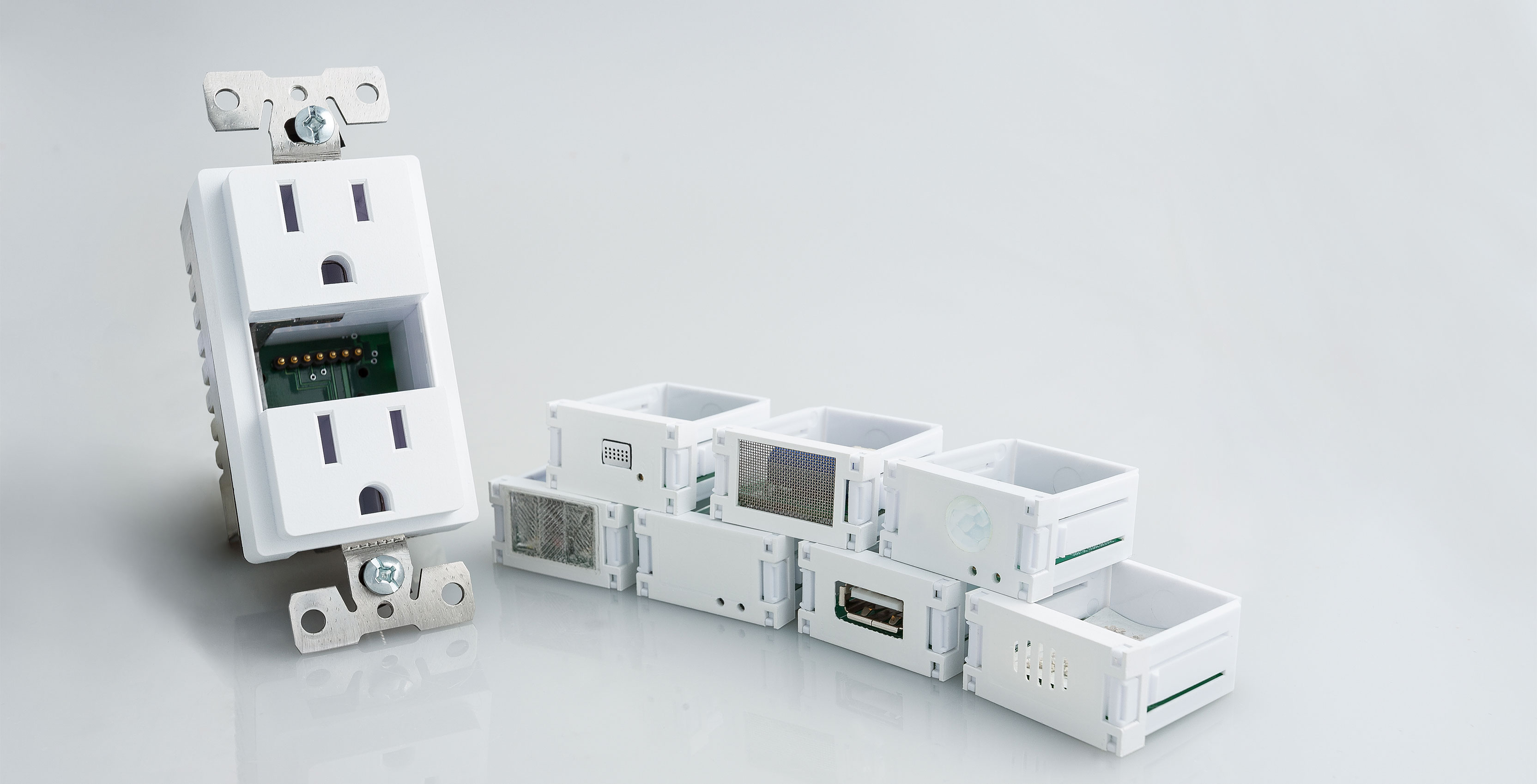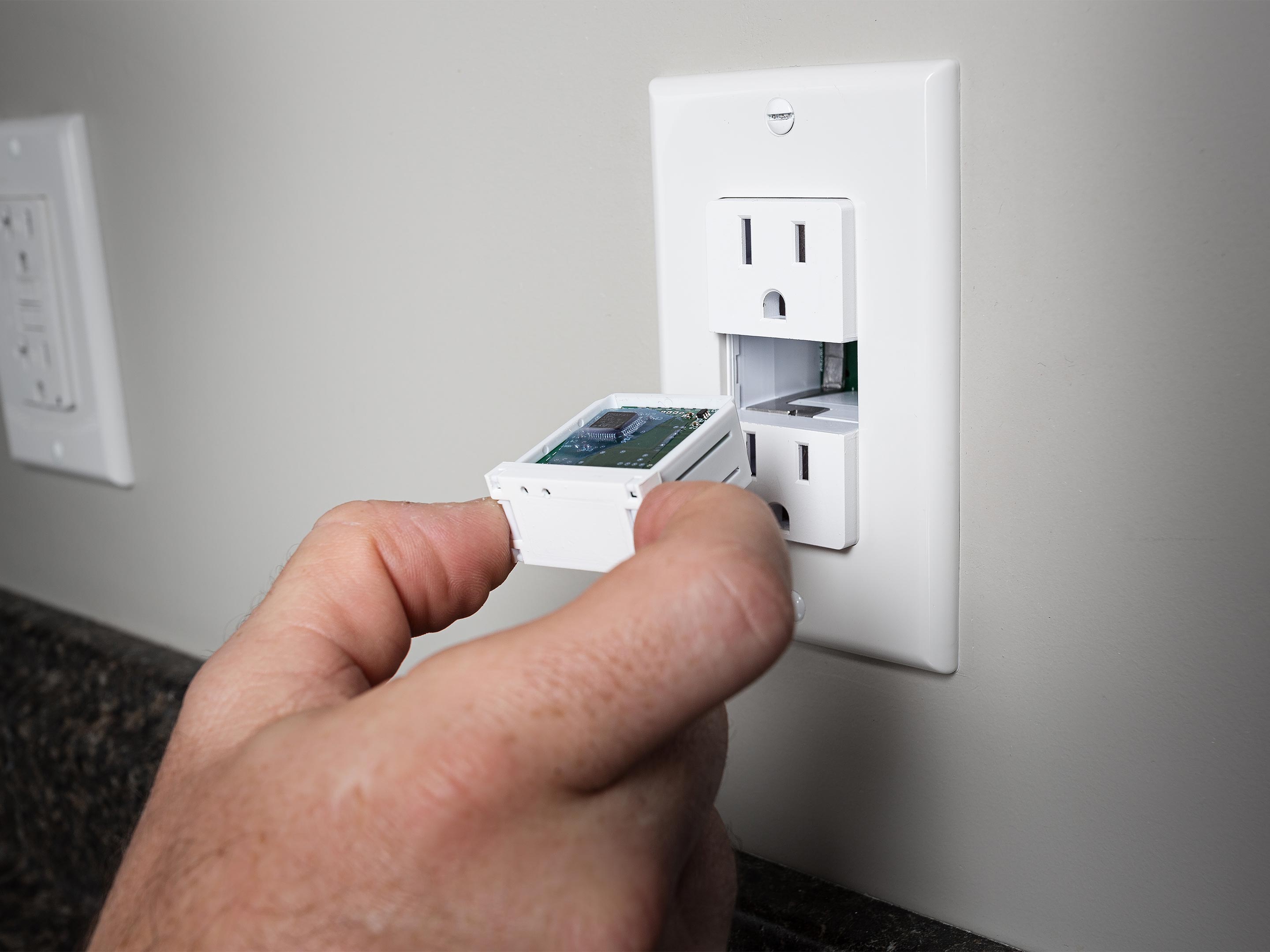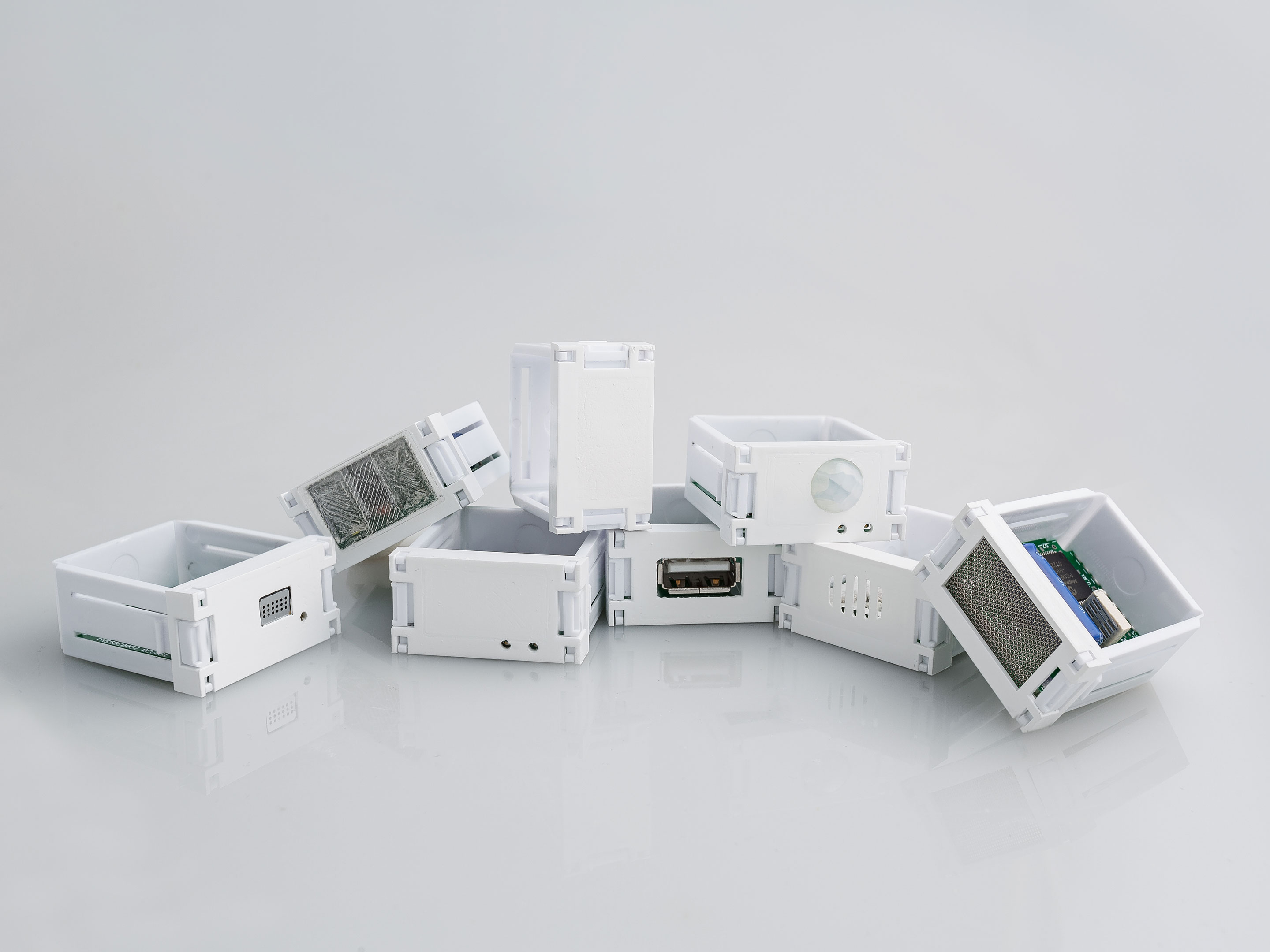
Have you ever wanted to turn your home’s standard wall plug into a smart, internet-connected outlet? This is exactly the IoT device Kingston, Ontario-based Swidget wants to create.
Swidget, a modular smart device that aims to replace traditional wall outlets by blending seamlessly with homes and removing the need for disparate, often expensive internet-connect products, launched its Kickstarter campaign today.
The company says that its Internet of Things (IoT) outlet can be installed in minutes and hooks up directly to a home’s existing wiring. Once installed, Swidget is able to adapt to the user’s specific purpose through a modular port that houses inserts that can be easily swapped plug-and-play style from the outlet, without the use of tools.
“What differentiates Swidget from other products is that it maintains the same discrete profile of a normal outlet, but gives the user the ease and freedom to select/swap/upgrade this functionality with a simple insert. No other product can claim as much,” said Lowell Misener, co-founder of Swidget in an interview with MobileSyrup.
Inserts include Wi-Fi modules, video cameras, motion/temperature detection, Bluetooth speakers, carbon monoxide sensors, aromatherapy, nightlights, and USB ports, with Misener mentioning that his team has plans to expand Swidget’s initial modules in the near future.
The company also has plans to open its smart home platform up to developers and smart home product manufactures via a dev kit that’s set to launch alongside Swidget’s Kickstarter. The project’s Kickstarter page says that Swidget has completed a pre-regulatory design review and that the funds earned from the crowdfunding campaign will help the device surpass further regulatory hurdles.
While replacing an outlet in a home is a relatively simple process, making a hole in your wall and rewiring an outlet, is still intimidating for many. Misener says this was something the Swidget team was aware of when creating the product and that the company is hoping “DIY types” will be the modular outlet’s first adopters.

“From the onset, we know that installing an outlet (even though it is a relatively simple process) is not for everyone. We’ve created an installation video for people to be able to judge their own capabilities in this regard,” said Misener.
Misener goes on to explain that in comparison, installing a device like a Nest or an Ecobee, is actually a more intensive process than adding a Swidget wall outlet to a home. “In our research, other smart devices like Nest/Ecobee require even more skill to install, yet there is still mass adoption. Ideally, the best opportunity for Swidget installations that avoids this issue completely is in the new construction market,” said Misener.
While Swidget seems great, at least at the outset, it unfortunately lacks integration with key smart home devices like Google Home, the only standalone voice activated assistant currently officially available in Canada.
However, a representative from Swidget says that further integration with existing smart home ecosystems is coming, and that an ‘Alexa Repeater,’ allowing integration with the Amazon Echo — which still isn’t officially available in Canada — is in the works.

In a sense, Swidget’s Alexa Repeater module essentially makes any lightbulb connected to a wall plug an internet-connected smart product, allowing the light to be turned on/off with simple voice commands facilitated through an Amazon Echo and Alexa. It’s worth pointing out that the same could be said about smart wall plug socket adapters like Belkin’s Wemo and Zuli’s various devices.
Swidget does, however, support Zigbee, an IoT mesh network solution utilized by a variety of products, as well as Z-Wave, another smart home network.
In terms of pricing, $38 USD (about $47.56 CAD) gets users an outlet and a Wi-Fi insert, with the Kickstarter offering various increased tiers of backing for additional Swidget units and modules. The estimated delivery date for Swidget is June, 2018.
MobileSyrup may earn a commission from purchases made via our links, which helps fund the journalism we provide free on our website. These links do not influence our editorial content. Support us here.


